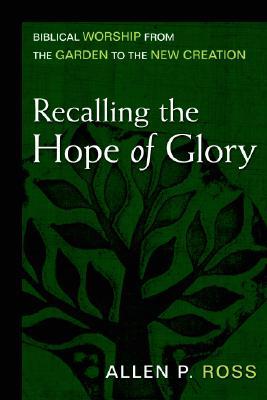 |
| Kregel Academic, 2006. 592 pp. |
Ross argues that Christian worship goes beyond feel-good, personal episodes—it is a dynamic, transformational encounter with the living God who reveals himself and to whom we have the privilege to respond. By surveying major passages on worship, Ross concludes that worship celebrates all that God has done throughout history, from creation to re-creation. As he writes, "The biblical material is not so much concerned with particular styles and methods but with proper attitudes and expressions." The question, then, should not be, "How can this worship affect me?" but rather, "How can this worship honor God?"
The book is divided into ten sections, each comprising a separate section of biblical history. Ross begins his study by laying the foundation: It is YHWH's holiness (קדשׁה, qodesh) and his revealed self that sets him apart from other gods, and our response ought to be one of obedience. Ross then shows how this pattern of revelation and response has enacted itself throughout the storyline of Scripture, from the Garden to the Patriarchs to the Temple to the Prophets to the early church. As Ross argues, for worship renewal to occur, the Church must first recover its "hope of glory" (כבד, kavod). We must move away from personal, petty preferences of style and song selection and toward glorious worship that exalts the Godhead. If we reframe our worship as an encounter to reenact the saving deeds of God in Christ, then our egos and selves shrink to surrender at the throne of God.
Instructive yet pastoral, this incredible work is comprehensive yet readable, deep enough for a scholar yet accessible enough for a layperson. For those curious about authentic worship, I highly recommend this book for pastors, worship leaders, and laypersons to enhance their "liturgical literacy." Regardless of denomination or theology, let Ross open your eyes to the wonder of worship and the sacred privilege of praising a mighty God. Sunday services will never look the same.
Further Reading:
- Block, Daniel I. For the Glory of God: Recovering a Biblical Theology of Worship. Grand Rapids: Baker Academic, 2016.
- Cherry, Constance M. The Worship Architect: A Blueprint for Designing Culturally Relevant and Biblically Faithful Services. Grand Rapids: Baker Academic, 2010.
- Webber, Robert E. Worship is a Verb: Celebrating God's Mighty Deeds of Salvation. Peabody: Henrickson, 1996.
Comments
Post a Comment